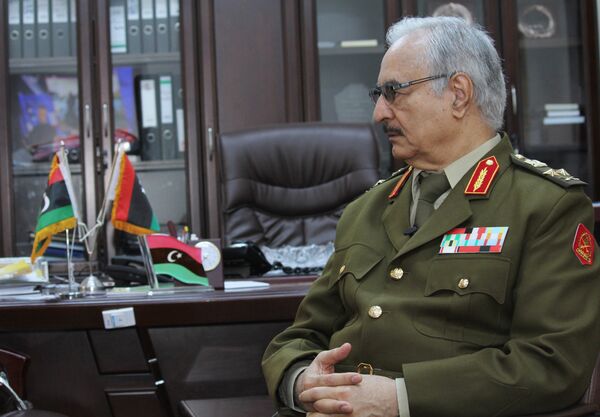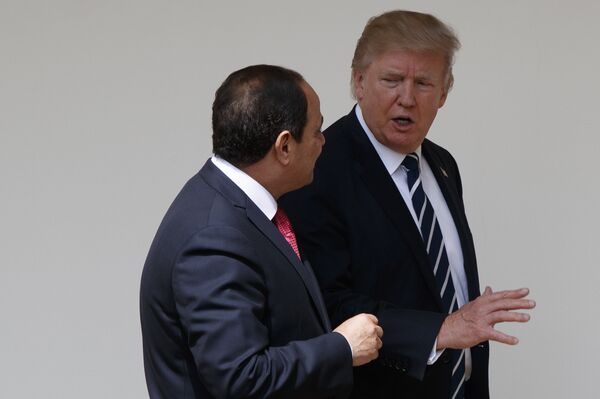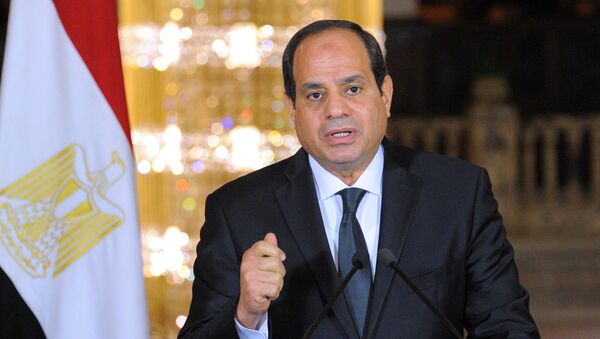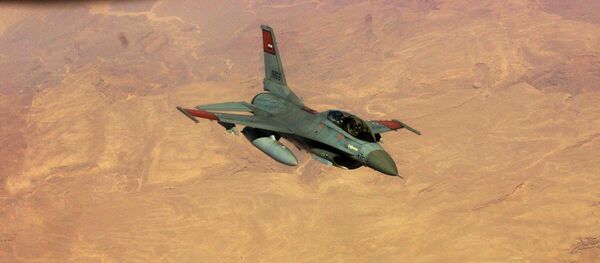On Friday, Cairo carried out a number of airstrikes on the Libyan city of Derna in the country's east saying that the attack was in retribution for the massacre of Christians by Daesh terrorists that had happened hours earlier. However, Daesh has no recorded presence in Derna.
#Libya #airstrikes were legitimate self-defence, says #Egypt FM https://t.co/5I4NfnKJDD pic.twitter.com/i59resyRLs
— ProMosaik (@promosaik_) May 29, 2017
Analysts have come to a near unanimous conclusion that the strikes were carried out not to counter a potential threat to Egypt, but in fact to lend assistance to the Field Marshal Khalifa Haftar and his self-styled Libyan National Army that are fighting a war in the East against the country's various Islamist insurgencies.
Haftar is the leader of one of Libya's two main political blocs based in the city of Tobruk, the other is Fayez al-Serraj who leads the UN-backed Government of National Accord that is based in Tripoli. The UN-brokered deal of 2015 that gave birth to the GNA gave no political role to Haftar and his LNA forces. However, the GNA and its international backers have had little choice but to slowly recognize the authority Haftar commands, as he has become increasingly popular in the country's East.
Derna is currently being ruled by a group called the Derna Shura Council, which drove Daesh fighters out in 2015. Haftar however, says that it is under the control of "terrorists" and has launched a campaign to take over the city. However residents of Derna have been cited in international media as describing how their city is being besieged, despite the fact that Daesh are not present, and argue that the Shura council has no connection with the Jihadi group. There are also those, who claim that the Shura council has connections with the former Libyan Islamic Fighting Group that took part in the uprisings against Colonel Muammar Gadaffi.
BREAKING: #Egyptian #airstrikes target locations of The Shura Council of Mujahideen in #Derna
— Al Arabiya English (@AlArabiya_Eng) May 26, 2017
Egypt's President Sisi has not been shy about his support for Haftar and has continued to provide him with military and diplomatic support. Both the Egyptian leader and Mr. Haftar have a shared concern and stated goal in trying to rid both of their countries, and the wider region, of the influence of not only Daesh and affiliates. However, they also share a desire to destroy Islamist groups with links to the Muslim Brotherhood, which has been exiled from Egypt in 2014 after then-defense secretary Sisi affected a coup against democratically elected leader Mohamad Morsi. It is likely that Sisi sees Egypt's intervention in Libya as aiding Haftar in bringing about this wider regional strategic objective.

Mr. Trump and Mr. Sisi struck a cordial tone with one another on the sidelines of the Riyadh summit last week, in which Trump said that Egypt's "safety seems to be very strong" under Sisi. Trump also accepted an invitation to visit Cairo, slated for later in the year.

Therefore, considered in this context, it is likely that Sisi feels emboldened by Trump's praise of his leadership and calls for Arab counters to do more to fight extremism. This, as well as Sisi's desire to see his anti-islamist ally Haftar succeed in the Libyan political deadlock, explains why Egypt has intensified in air attacks in Libya.



